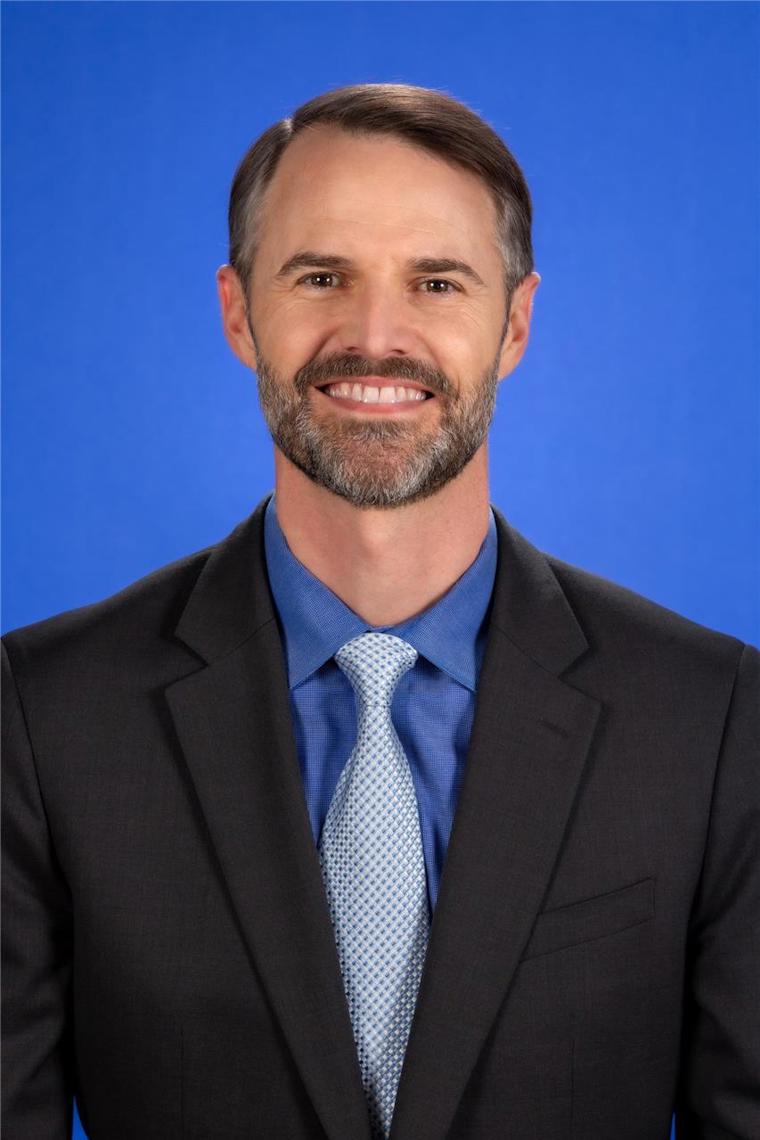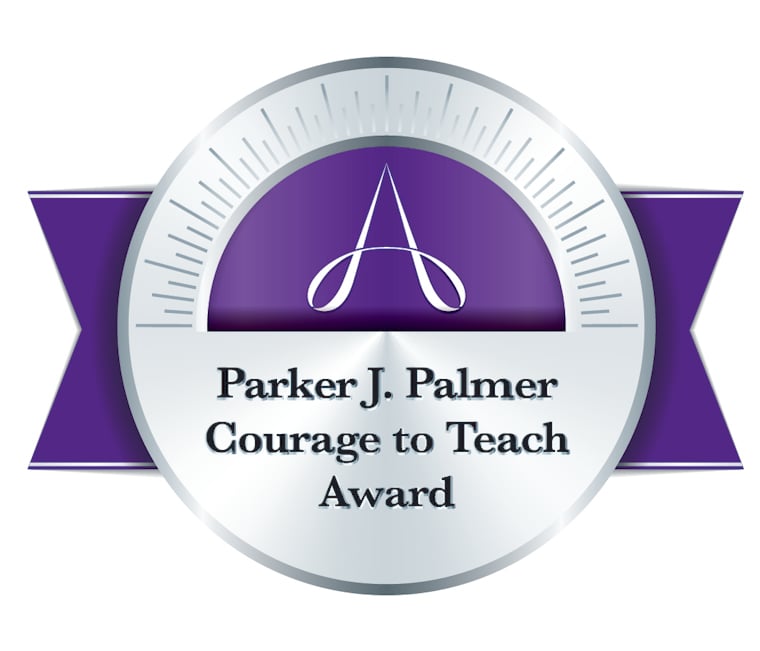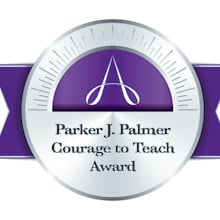This interview is one in a series of interviews with recipients of the 2021 ACGME Awards. The awardees join an outstanding group of previous honorees whose work and contributions to graduate medical education (GME) represent the best in the field. They were honored at the ACGME Annual Educational Conference, which took place virtually February 24-26, 2021.
2021 Parker J. Palmer Courage to Teach Awardee David Barnes, MD is the program director for emergency medicine at the University of California (UC) Davis Medical Center, UC Davis School of Medicine, UC Davis Health in Sacramento, California.
ACGME: How did you become involved in medicine, and in academic medicine specifically?
Barnes: My path was somewhat atypical. My parents are both in the medical field—my father an emergency physician and my mother a former critical care nurse. I literally grew up in a hospital; I would sleep in my father’s call room when they were both on duty overnight, and would do my homework there after school until they were off shift. I got my first anatomy book when I was five years old. You could say I was destined to be in the medical field, but I didn’t actually contemplate a medical career until I was halfway through college. Instead, I was headed towards a law career, but the experience of losing a close family member to a complex illness affected me profoundly. I was instantly drawn to medicine and changed my major almost overnight.
During medical school, which I started after a four-year gap, I loved the synergy of clinical medicine and basic science and started an interest group for medical students who wanted to explore mechanisms of disease in more depth. I found the experience of designing and facilitating case discussions with the faculty extremely rewarding. At that point, I wasn’t even committed to the specialty of emergency medicine. Separately, I had taught high school speech and debate after finishing college. So, I think I always had a little bit of teacher in my blood, even if I never recognized it. In my final year of residency, I reflected on what fulfilled me professionally beyond direct patient care and found myself consistently returning to the same theme: teaching. I was selected to be chief resident (an extra year in my program) and did a lot of curriculum development to get more experience as a medical educator. That really sealed the “academic career” deal for me, and I haven’t looked back since.
ACGME: What does this award mean to you?
Barnes: It’s difficult to grasp the significance of an award of this magnitude. On the one hand, I’m extraordinarily proud to have been recognized for my work. Like every program director I’ve ever met, I’ve poured my heart and soul into making our program and residents the very best they can be. This isn’t a job one does part time or with less than full intensity. So this feels like the biggest high-five ever for a job well done. On the other hand, I am profoundly humbled to be one of a select few chosen for such a prestigious award from amongst so many qualified program directors. Even to have been nominated is a tremendous honor for me.
I consider past awardees from my specialty as the “Giants of EM” whom I’ve always admired and revered from afar. To be a member of that club is absolutely surreal. However, I fully recognize that program directors don’t succeed in isolation. It’s only because they stand on the shoulders of those around them that they can reach up and touch the sky: the residents they work to support and give their work purpose, the faculty members who execute their vision for the program, the department chair who mentors them and helps them secure the resources necessary to run a program, the program staff who do so much of the day-to-day heavy lifting to keep the program operational, and of course their family and friends outside of medicine who love and support them. This is very much a team sport, and I feel this award equally celebrates all of them.
ACGME: What do you feel is the most important job the program director has?
Barnes: See my answer to the next question. They’re the same.
ACGME: What is the most rewarding part of your job?
Barnes: I used to think that being a program director was all about organization, time and task management, and paperwork. I don’t really mind the administrative requirements of running the program; in fact, I kind of like it most days! And since so much of the program’s reputation, status, and future success depend on accreditation, it’s a fairly rewarding process. It wasn’t until a few years into the role that I realized mentoring is not just the most rewarding aspect of being program director, but also the most important. As program directors, we have the opportunity to guide residents through what is arguably the most difficult, yet most transformative, period of physician development. Bearing witness to the cognitive, emotional, and physical highs and lows of each resident’s journey, and walking in tandem with them, is both humbling and inspiring. Every opportunity to take part in that journey is a gift. But that journey doesn’t end with graduation. I still keep in touch with residents from over the years, including my first class as program director. Seeing graduates themselves go on to be teachers and leaders in both community and academic settings is tremendously satisfying.
ACGME: What is the most challenging?
Barnes: It can be exhausting to maintain the same high level of intensity, enthusiasm, and engagement day in and day out. For most jobs, you don’t have to bring your “A game” 24/7, but program directors don’t relinquish their responsibility to the program and residents because it’s 5:00 p.m. on a Friday. You can’t turn off the switch if you’re needed after hours or on a weekend. And not only is a program director’s switch always on, but they have to be prepared to wear many different, and sometimes unrelated, hats—clinician, educator, role model, cheerleader, administrator, confidant, wellness champion, and more.
ACGME: What advice do you have to residents or fellows who may be interested in pursuing a career in academic medicine?
Barnes: Be prepared to take a road less traveled…one that’s unpaved, uphill, and has sheer cliffs around every corner! Teaching is a serious commitment. Teachers are called upon to be experts, and their students rely on them to show them truth and inspiration. If it were easy, everyone would do it, right? One has to have the courage to try and succeed, but also the grace and humility to accept failure when it arrives. Have faith that the rewards will ultimately outweigh the challenges. Be in it for the right reasons. (Hint: Fortune and glory are not the right reasons!)
In few professions is so much at stake; the success of an entire generation is counting on you. There’s an old saying I despise: “Those that can, do. Those who can’t, teach.” I mean, who really believes that? Teachers play one of the most critical roles in our world. I submit that the saying should instead be: “Those who can, do. Those who can do it best, teach.”
ACGME: Is there anything else you would like to add we haven’t asked about?
Barnes: I want to say a heartfelt thank you to my family—in particular my wife, my two children, and my parents—who every day give me their unconditional love and encouragement.




